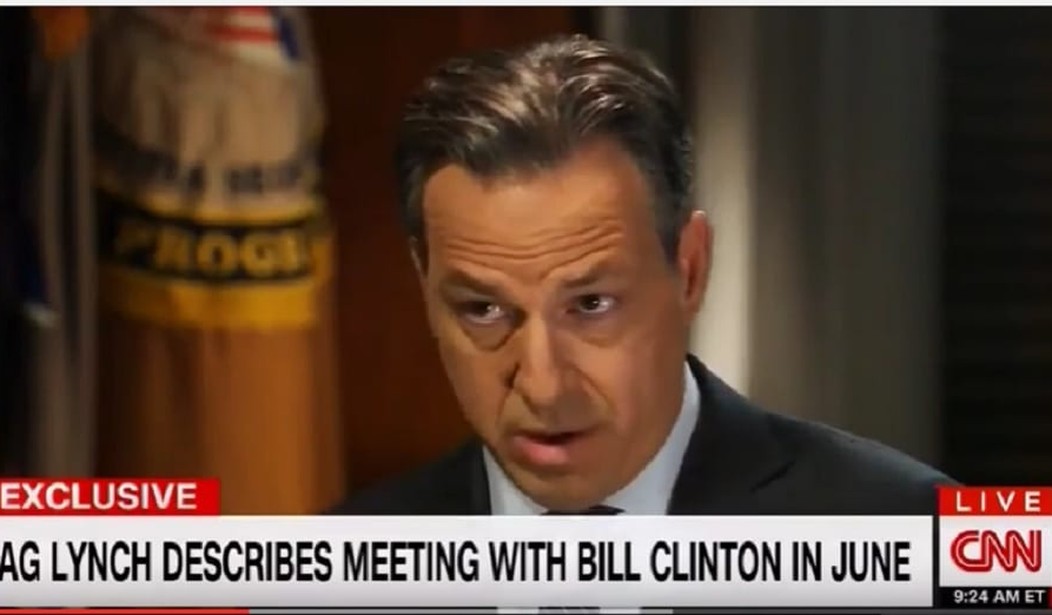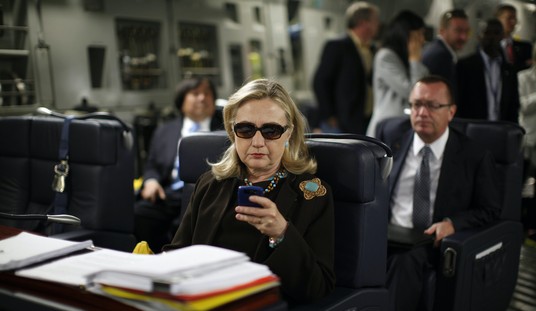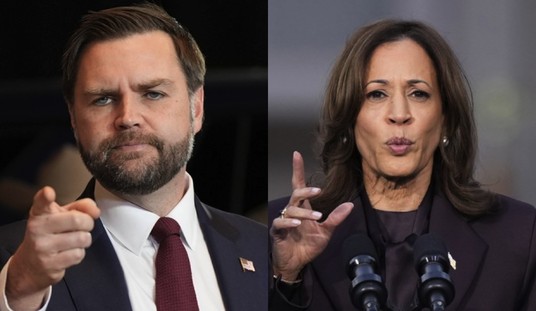Loretta Lynch seems to have become a huge walking rhetorical question. Time and again she says and does things which leave you scratching your head in wonder and amazement that this woman, if she’s not simply a pathological liar, is able to take a shower without drowning.
Just this week she claimed that the president had no authority to pardon DREAMers, not because it might be beyond the scope of Executive power but because pardons are individual affairs. Two instances of mass pardon immediately come to mind: Vietnam war draft dodgers and Confederate soldiers after the end of the Civil War. This led me to wonder whether she was stupid or just thought everyone else was.
Now, thanks to Jake Tapper and “State of the Union,” we have another wtf moment.
TAPPER: Take me back to June 27. You and President Clinton were both in Phoenix, Arizona. He saw your plane on the tarmac. He got on board your plane. How did that visit happen? Did somebody say, hey, President Clinton is outside, he wants to come in, or did he just come in?
LYNCH: Well, I can’t say what President Clinton saw or thought, because I wasn’t in communication with him before that. So, I don’t know what was in his mind. All I can tell you…
TAPPER: No, but did an FBI agent say, hey, he’s outside, he wants to come in?
LYNCH: All I can tell you is that we were landing and we were moving on with our program. And we were about to leave and about to go into our cars and move on to our evening events. And it was communicated to me that he wanted to say hello. And that was all the information that we gained.
TAPPER: Trump campaign manager Kellyanne Conway told me that that meeting, President Clinton coming to you — quote — “bothered” some voters because it — quote — “played right into the culture of corruption,” the notion that there’s — quote — “different set of rules for elites like the Clintons.”
Looking back, do you wish that, when he came over, you said, we really shouldn’t talk, it would really be inappropriate, and hello and goodbye?
LYNCH: So, as I have said at the time, I think like days after that meeting, I regretted not seeing that issue and not seeing around that corner. I regret it, viewing it as, just again, as the number of people who come by and say hello, as you see.
TAPPER: It didn’t cross your mind when you were sitting there, like, oh, somebody is going to make a big deal out of this?
LYNCH: And our conversation went on a lot longer certainly than I had anticipated, because it was just going to be hello, how are you, and everyone was going to go on about their evening, as far as we were concerned.
TAPPER: He’s a talker.
LYNCH: He is a talker, yes, yes. He is a talker. I really do believe, Jake, that things happen. And, as I said, I wish I had seen around that corner and not had that discussion with the former president, as innocuous as it was, because it did give people concern. It did make people, is it going to affect the investigation that’s going on? And that’s not something that was an unreasonable question for anyone to ask. And my view is — and always has been — that when you are in public life or even in private life, and you make a mistake, you own it. And you talk about it right away. You let people know what you’re going to do to deal with the impact of that mistake. And my concern was, what impact was that going to have on people’s views of the Department of Justice and the work that we were doing?
TAPPER: So, in retrospect, I’m sorry, Mr. President, it would be inappropriate for us to talk? Do you wish you had said that?
LYNCH: Well, I do regret sitting down and having a conversation with him, because it did give people concern. And, as I said, my greatest concern has always been making sure that people understand that the Department of Justice works in a way that’s independent and looks at everybody equally. And when you do something that gives people a reason to think differently, that’s a problem. It was a problem for me. It was painful for me. And so I felt it was important to clarify it as quickly and as clearly and as cleanly as possible.
According to Lynch, a former prosecutor, a US Attorney, and a federal judge she never had an inkling that meeting privately with the husband of someone who was the subject of a high profile investigation would be interpreted by anyone to mean that she and the Department of Justice were taking sides. Especially when FBI Director Comey’s public statement laid out clear grounds for prosecution.
Here we are left with two possibilities. Neither of them pleasant but one of them at less damaging than the others.
Is this woman f***ing stupid? How could anyone possibly think that a private meeting with the spouse of the subject of a presidential candidate who was under FBI investigation could be misconstrued?
Does this woman think we are freaking stupid enough to believe this story?
The fact that Bill Clinton, who is assuredly neither stupid nor politically inept, met with her and would, unlike Lynch, been aware of the perception if makes one wonder what he was thinking when he decided to call the meeting.














Join the conversation as a VIP Member